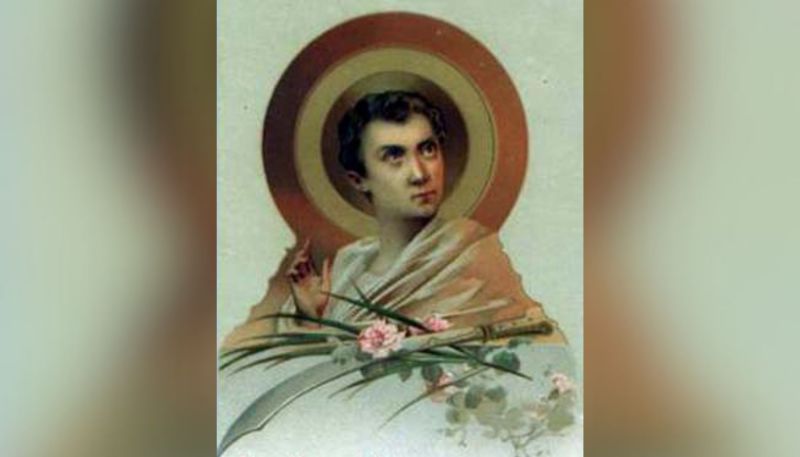Washington, D.C. Newsroom, Jan 12, 2024 / 09:45 am (CNA).
On Jan. 12, the Church honors the feast days for several martyrs and groups of martyrs at a time in which Christians still face persecution and the threat of martyrdom at the hands of authoritarian governments and other hostile actors in many parts of the world.
“Invent what torments you please,“ St. Arcadius of Mauretania told a pagan judge who threatened him with torture if he would not offer a sacrifice to one of the false Roman gods in 302 A.D., according to Catholic.net.
“Nothing shall make me betray my God,” Arcadius said. “The fear of death will never make me fail in my duty.“
The judge ordered the torture and execution of Arcadius, which was carried out by chopping off his limbs. The martyr is one of many Christians who was put to death during the Roman persecution of Christians in the early fourth century.
“Learn from my torments,“ Arcadius is said to have told onlookers as he was dying. “Your gods are nothing. The only true God is the one for whom I am suffering and about to die. To die for him is to live.“
Jan. 12 also marks the feast days for three different groups of martyrs, spanning three different continents: the Martyrs of Ephesus in A.D. 762, in present-day Turkey; the Martyrs of Iona in A.D. 806, in present-day Scotland; and the Martyrs of Africa, whose specific date and location is unknown.
The Ephesus martyrs numbered between 40 and 50 monks who were persecuted under a fellow Christian, Byzantine Emperor Constantine V. They were killed for opposing the ruler’s adherence to and enforcement of the heresy of iconoclasm, which opposed the veneration of icons and manifested in the destruction of holy images throughout the East.
The Iona martyrs were more than 60 monks who were killed when Danish pirates raided the island, burned down the monastery, and slaughtered the occupants. This was one of many Viking raids on the British Isles by Norse pagans.
Most of the details of the African martyrdom honored on Jan. 12 have been lost to history, but the feast honors about 50 soldiers who were killed for their faith.
Although these martyrdoms occurred more than 1,000 years ago, many Christians around the world still face the threat of martyrdom in 2024.
According to a report from the Catholic charity Aid to the Church in Need, more than 50% of the world’s population lives in a country in which state or nonstate actors persecute people for their religious beliefs.
In recent years, Nigeria has been one of the most dangerous spots for Christians. Just last month, Islamic terrorists launched an attack on Christian villages that left nearly 200 Nigerian Christians dead. During a 15-month period throughout 2021 and the first three months of 2022, more than 5,000 Christians were killed in attacks.
A separate report from the watchdog group Open Doors found that the persecution of Christians is at its highest point in decades. Some of the worst government offenders are North Korea, Iran, and Pakistan. Christian persecution is also on the rise in other countries, such as India, where anti-conversion laws are leading to Christians being arrested, and Nicaragua, where the socialist regime is arresting members of the clergy who oppose the government and shutting down Catholic schools and media outlets.
In the beginning of his papacy, Pope Francis reminded the faithful that in many countries, Christians are still persecuted for their religion.
“The age of martyrs is not yet over; even today we can say, in truth, that the Church has more martyrs now than during the first centuries,” the pontiff said. “The Church has many men and women who are maligned through calumny, who are persecuted, who are killed in hatred of Jesus, in hatred of the faith.”




